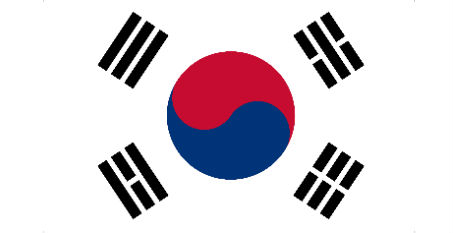Human Rights Watch has castigated the South Korean government’s exclusion of LGBT rights in sex education guidelines for schools as “pejorative” and “intolerant” and has called for the policy to be reversed.
The exclusion of LGBT people from the policy will have discriminatory impact and should be reversed, according to a Human Rights Watch letter to the government.
The Ministry of Education had since March 2015 began training sessions for education officers across the country on new sex education guidelines that exclude any mention of “homosexuality or sexual minorities” reported Human Rights Watch on May 3. The policy failed to include same-sex relations and sexual minorities, it said.
The ministry excluded the mention of homosexuality from the curriculum because it said homosexuality is “not a common issue in relation to sexual orientation,” and “school education needs to be carried maintaining value neutrality regarding society, culture and religion,” reported the international NGO that conducts research and advocacy on human rights.
“These guidelines enshrine discrimination on the basis of sexual orientation and gender identity,” said Graeme Reid, LGBT rights director at Human Rights Watch. “Excluding homosexuality and LGBT people in the curriculum sends a pejorative, intolerant message to the youth of South Korea and violates basic rights to information, health, and education.”
Human Rights Watch says the guidelines also contradict South Korea’s stand at the United Nations where it has voted for both the 2011 and 2014 Human Rights Council resolutions calling for an end to sexual orientation and gender identity based violence and discrimination.
Besides being discriminatory, the government guidelines pose a public health issue, according to the NGO.
“The right to health requires that individuals have access to accurate information, including information related to sexual and reproductive health,” it said pointing out that HIV infections have increased sharply in South Korea since 2000, and infections are increasing fastest among men in their 20s.
“For South Korea to grapple with its HIV epidemic and maintain its integrity in international human rights forums, the government needs to ensure accurate and inclusive information is delivered to students as a matter of policy,” said Reid. “That includes information about LGBT people.”
Major UN agencies have recommended “inclusive approaches” to sex education and that the South Korean guidelines are “significantly different.”
The NGO says the government policy was probably because of pressures from some religious groups to exclude information about LGBT people from the sex education curriculum.
It cited the 2014 letter from the Korean Association of Church Communication religious group condemning contents of the draft sex education policy for teaching students about “diverse sexual orientations” which, the group claimed, may lead young people to “fall into temptation” and a “wrong” sort of sexual culture.
According to The Korea Herald newspaper, “the lack of protection for teenage sexual minorities has been a hot-button issue recently in Korea.” About 45.7 percent of sexual minorities aged 18 or younger said they had attempted suicide, according to a recent survey by the Korean Society of Law and Policy on Sexual Orientation and Gender Inequality, it said.
Male and female same-sex sexual activity is legal in South Korea although homosexuality is not specifically mentioned in either the South Korean Constitution or in the Civil Penal Code.
However, general awareness of LGBT people has remained low among the Korean public and Korean gays and lesbians still face difficulties, and many prefer not to reveal their gay identity to their family, friends or co-worker.












 打印版本
打印版本


















读者回应
That's right, put me in the self hater box.
Lol
Large percentages of small samples really shouldn't be cited as evidence of anything.
Teaching kids to be gay isn't a good idea.
请先登入再使用此功能。